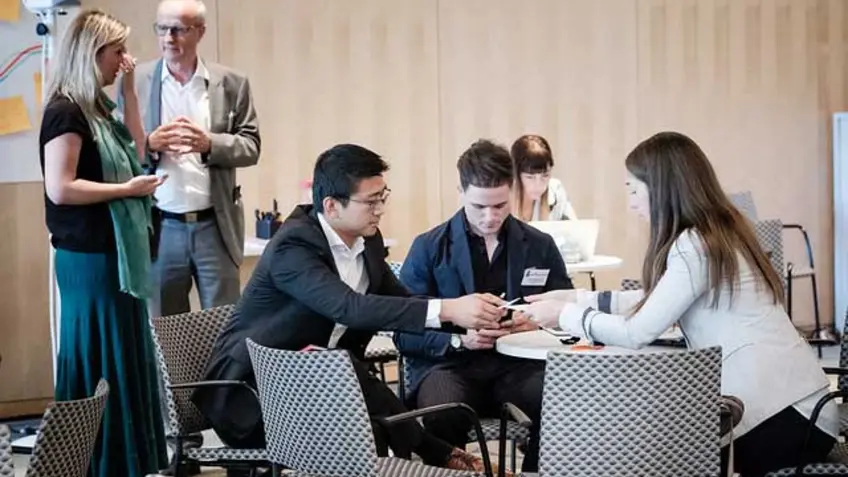Funding Knowledge Resources That Support Climate Action
Members of the NDC Partnership have redoubled efforts to accelerate progress towards the goals of the Paris Agreement. These efforts include increasing technical and financial assistance for developing countries to enhance their adaptation and mitigation efforts. But it also means relevant stakeholders need to think critically about the knowledge, resources, and capacity development needed to empower countries to transform their ambition into action.
There is no shortage of knowledge resources to support these efforts. But for many countries, the challenges are sifting through them to find the most relevant resources, applying them to national and local contexts, and building capacity to use them effectively. The NDC Partnership Support Unit has worked with members to understand what makes a knowledge resource useful for NDC implementation and what processes are needed for more effective knowledge resource production and use. Through our engagement with developing country and institutional members, we have learned what countries are looking for and how institutions can best respond to these needs. You can read these recommendations in our Insight Brief.
Most recently, on the sidelines of SB50 in Bonn, the NDC Partnership Support Unit brought together development partners and knowledge partners to explore how to enhance the impact of the knowledge resources members of the Partnership develop and fund. Breakout tables focused on knowledge co-production to engage users from the start of a product’s development, capacity-building around the use of these products, and monitoring and evaluation to understand products’ impact. Development partners shared funding strategies, institutional partners cited examples of successful engagement with end users on the development and dissemination of knowledge products, and the group collectively discussed challenges and brainstormed steps forward.
This knowledge exchange surfaced four key lessons for funding and developing effective knowledge resources.
Involve users from start to finish
The distinction between “demand-driven production” and “co-production” is a tricky one. Knowledge resources are “demand-driven” when they are developed on the request of users, but the users may not be involved in the resource’s development. Co-production is an iterative process, in which end-users provide enough feedback to truly shape a knowledge resource’s development; often, there is no distinction between the user and producer of knowledge. For this iterative process to be successful, users and producers of knowledge must build relationships, as well as commit time and energy. This can be difficult, but workshop attendees cited some creative examples of success. For example, the Red Cross Red Crescent Climate Center hosts “write-shops,” in which participants craft their own products with the guidance of experts and professional writers. GIZ embeds local staff in government agencies to facilitate country-tailored co-production, while BEIS leverages intermediaries between the donor and the users of knowledge to serve as neutral parties.
Maximize the effectiveness of capacity-building
Participants agreed that capacity building is most effective when it is country-driven and designed in a way that enables people to learn things for themselves. Participants suggested a wide variety of creative approaches to building sustained capacity, including training government officials, establishing in-country offices, and working with local research institutions and NGOs. For example, the World Resources Institute works with national universities to build capacity around the use of its products, like the Greenhouse Gas Protocol, so that the universities can take over training. UN CC:Learn not only trains government officials, but also trains teachers to talk about climate change and develop training materials for their schools. Two successful capacity building techniques mentioned by various organizations were training kits that offer a variety of learning materials for different audiences (e.g. videos, presentations, infographics) and games that allow users to make discoveries on their own.
Leverage monitoring and evaluation to learn from experiences
Attendees stressed the distinction between monitoring and evaluation for accountability (a checkbox for donors) versus monitoring and evaluation for learning (to inform changes in future projects). As with co-production, an iterative process is useful, when feedback from previous projects informs new project development. In addition, qualitative approaches (e.g. talking to individual users) can be much more informative than quantitative approaches (e.g. counting website hits).
Overcome institutional barriers to move to a country-led process
The most commonly cited challenge throughout the workshop was changing the institutional status-quo. Donors and international institutions have historically dictated priorities for climate action support, including knowledge support. Shifting to country-driven processes requires breaking old habits and building new frameworks. Capacity building and co-production cannot simply rely on individual relationships and expertise due to staff turnover in governments and institutions. Finally, in their current form, co-production, capacity-building, and monitoring and evaluation (M&E) are extremely time- and money-intensive because funding models and institutional structures are not set up to support them.
To address these challenges, development partners and institutions must move away from simply “engaging” local research institutes to empowering them to take on complex challenges themselves. We also need to build up the capacity of international knowledge producers to better understand and respond to the knowledge needs of developing country users. Finally, we should adjust M&E frameworks to tolerate and, more importantly, learn from our failures. The transformational changes needed for climate action require a massive undertaking of risk, willingness to invest true capacity building, and flexibility to adapt our processes as we learn new things.
The NDC Partnership was designed to tackle challenges like this. By bringing together developed and developing countries, international institutions, and NGOs, we can learn from each other and work together in new ways. The Support Unit will continue to highlight best practices, compile useful guidelines, and foster conversations. We invite you to join this conversation by reaching out to us at supportunit@ndcpartnership.org.
This blog was written by Talia Calnek-Sugin, Knowledge and Learning Project Coordinator, and Amanda McKee, Head of Knowledge Management.
